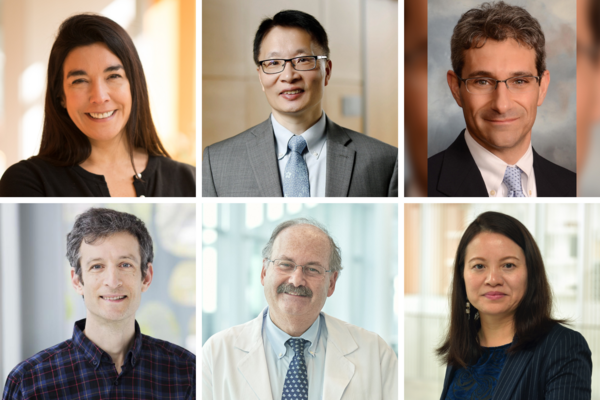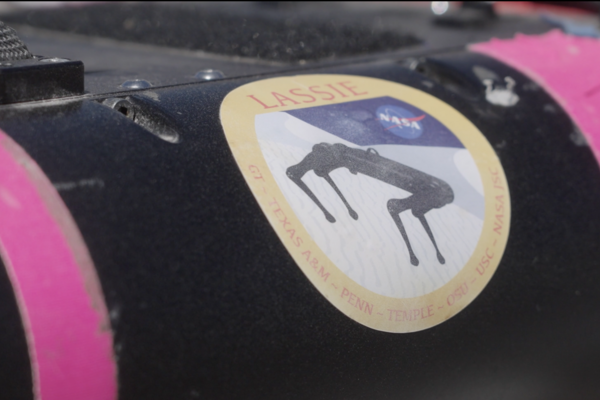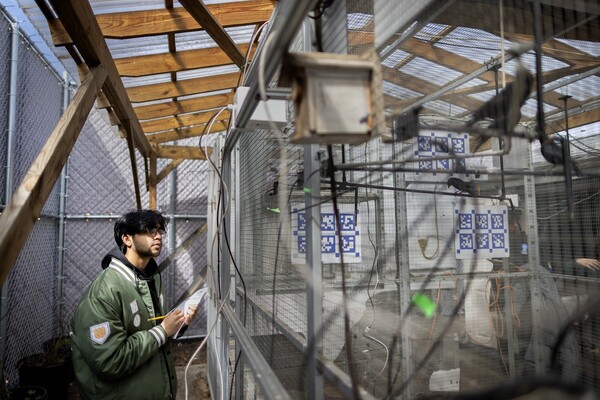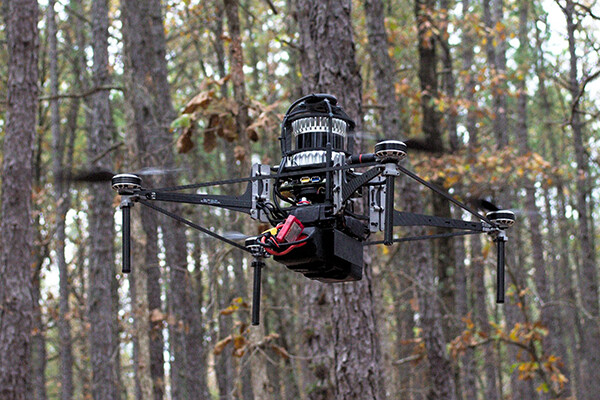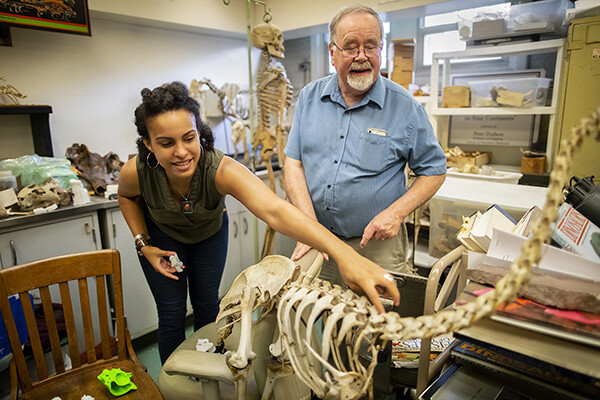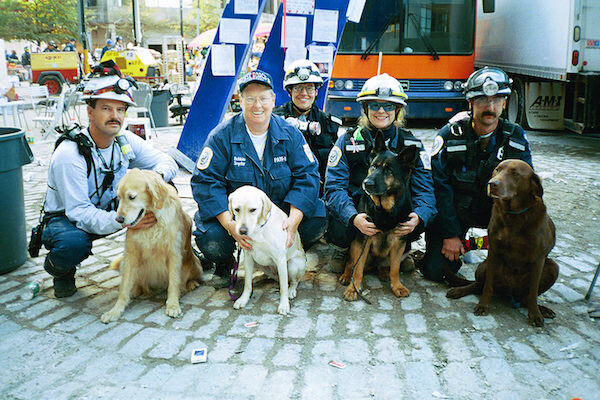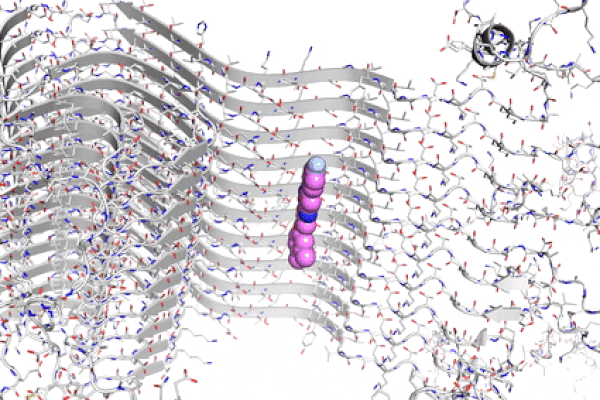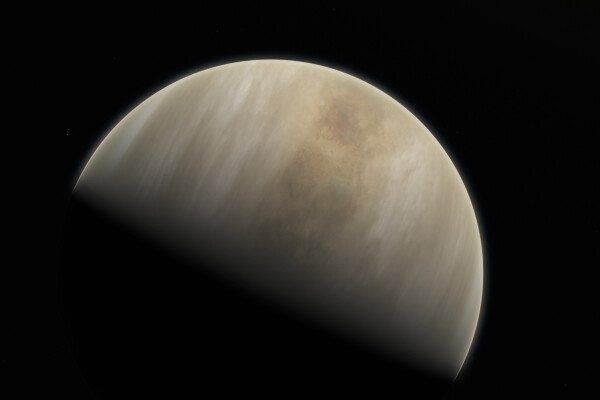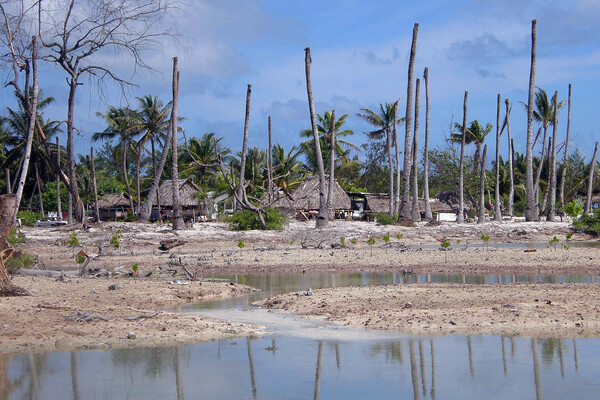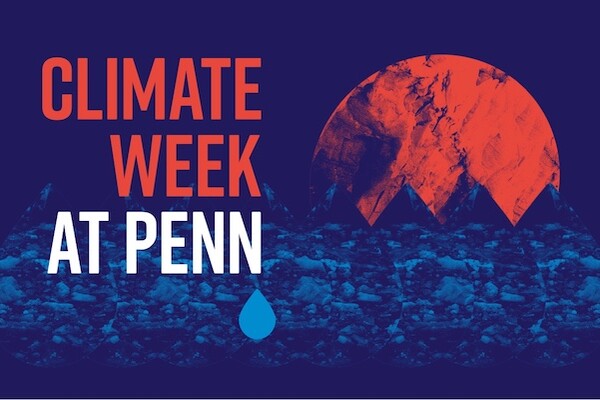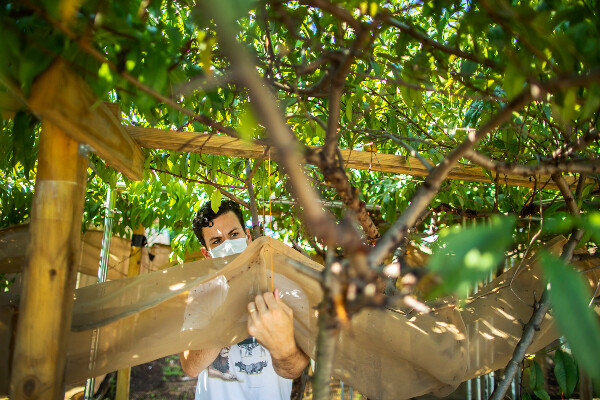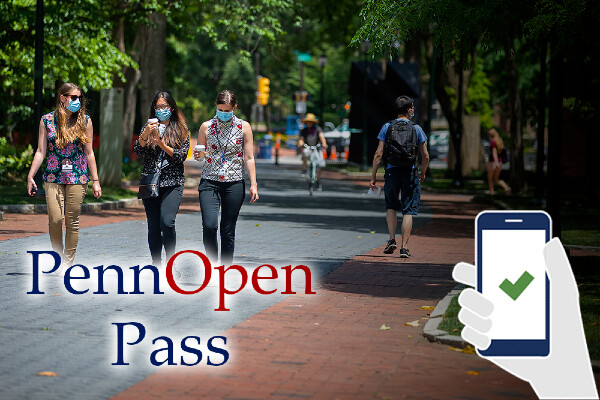4/22
Science & Technology
Treeswift’s autonomous robots take flight to save forests
From Penn Engineering’s GRASP Lab, Treeswift uses swarms of autonomous, flying robots equipped with LiDAR sensors to monitor, inventory, and map timberland.
In paleontology, Peter Dodson is a king begetting kings
World-renowned paleontologist Peter Dodson names his greatest accomplishment: being a mentor.
Tracking the working dogs of 9/11
A study of search and rescue dogs led by the School of Veterinary Medicine showed little difference in longevity or cause of death between dogs at the disaster site and dogs in a control group.
Researchers discover new molecules for tracking Parkinson’s disease
The study describes an innovative approach for identifying and evaluating candidate molecules that can image and track the progression of a wide range of neurodegenerative diseases.
Did scientists detect chemical signals from Venusian microorganisms?
Four takeaways from astronomer Cullen Blake on what this potentially groundbreaking study shows and what comes next for scientists who are keen to understand these faraway chemical signals.
Seeking refuge in the climate emergency
The Perry World House 2020 Global Shifts Colloquium looked at the need to address mass displacement and why climate change poses a national security threat.
Climate Week offers something for ‘every member of the Penn community’
With participation from schools, centers, and groups across the University and a focus on the interplay of the climate emergency with social justice issues and the global pandemic, Climate Week at Penn will run September 21-25. The week’s dozens of events will help participants learn about the climate crisis—and then act.
Research Recovery Program supports scholars impacted by the pandemic
A new funding mechanism offers grants designed to help researchers mitigate unexpected costs and provides opportunities for scholars to delve into new areas of study.
Merging big data and marine biology
Junior Ashna Sethi found an opportunity to delve into one of her passions this summer with paleobiologist Lauren Sallan’s lab in the School of Arts & Sciences.
Using PennOpen Pass for the early detection of COVID-19
The daily symptom tracker is a critical step in ongoing efforts to safely resume academic, research, and clinical activities across campus.
In the News
Here’s why experts don’t think cloud seeding played a role in Dubai’s downpour
Michael Mann of the School of Arts & Sciences says that many people blaming cloud seeding for Dubai storms are climate change deniers trying to divert attention from what’s really happening.
FULL STORY →
Can we stop AI hallucinations? And do we even want to?
Chris Callison-Burch of the School of Engineering and Applied Science says that auto-regressive generation can make it difficult for language learning models to perform fact-based or symbolic reasoning.
FULL STORY →
“Record-shattering” heat wave in Antarctica — yep, climate change is the culprit
Michael Mann of the School of Arts & Sciences says that persistent summer weather extremes like heat waves are becoming more common as people continue to warm the planet with carbon pollution.
FULL STORY →
How the solar eclipse will affect solar panels and the grid
Benjamin Lee of the School of Engineering and Applied Science says that the electrical grid will have to figure out how to match supply and demand during brief windows where the energy source goes away.
FULL STORY →
Scientists struggle to explain ‘really weird’ spike in world temperatures
Michael Mann of the School of Arts & Sciences says that tendencies to exaggerate climate science in favor of “doomist” narratives helps no one except the fossil fuel industry.
FULL STORY →
Spring is here very early. That’s not good
Michael Mann of the School of Arts & Sciences says that plant-flowering, tree-leafing, and egg-hatching are all markers associated with spring that are happening sooner.
FULL STORY →
Can your personal medical devices be recycled?
A lab at the School of Engineering and Applied Science led the development of a COVID test made from bacterial cellulose, an organic compound.
FULL STORY →
Could Florida electric bills go up because of a fuel made from manure?
Danny Cullenward of the Kleinman Center for Energy Policy at the Weitzman School of Design says that federal and California state subsidies have led to a gold rush of companies trying to get into the business of renewable natural gas around the country.
FULL STORY →
Pa. environmental, religious and other groups criticize Shapiro plan for ignoring climate change
A study by the Kleinman Center for Energy Policy at the Weitzman School of Design found that Pennsylvania would benefit overall from joining the Regional Greenhouse Gas Initiative.
FULL STORY →
Why don’t we just ban fossil fuels?
Joseph Romm of the School of Arts & Sciences says that stronger action against fossil fuels is essential to save the planet.
FULL STORY →




